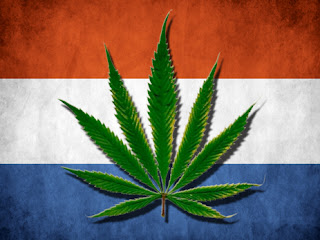 |
| Rule of Law - one of the basic princiles of Democracy |
From the rubble of two world wars, European countries came together to
launch what would become the world’s largest experiment in unification
and cooperative, shared sovereignty. But, despite its impressive
achievements over the decades, the European project now risks
disintegration.
An unresolved
financial crisis, a refugee crisis, a deteriorating security
environment, and a stalled integration process have created throughout
Europe a toxic, unstable political environment in which populism and
nationalism thrive. Perhaps the clearest manifestation of this is the
erosion of the rule of law in the European Union.
Two EU members in particular,
Hungary and Poland, are now jeopardizing hard-won European democratic norms – and thus undermining the very purpose of European integration.
In Hungary,
liberal-democratic values have come under systematic attack from Prime
Minister Viktor Orbán’s government. Since his return to the premiership
in 2010, Orbán has committed Hungary to an authoritarian nationalist
path, and he has exploited the refugee crisis to cement a “siege
mentality” that helps him sustain popular support.
In
the process, fundamental rights have been ignored, media freed refugees
have been demonized, and Orbán is doing everything in his power
to weaken the EU. Attempts by EU institutions to convince Orbán to
change course have only emboldened him to commit further outrages
against democratic norms.
Meanwhile, a
democratic crisis has
emerged in Poland as well, starting last October, when the Law and
Justice (PiS), a Euroskeptic party that also opposes immigration,
secured an outright parliamentary majority by promising to implement
populist economic policies and “put Poland first.” Yet, since the
election, PiS has launched a series of attacks on the Polish
constitution itself.
Government legislation aimed at
reforming Poland’s Constitutional Court has
been condemned by the Court itself and the European democracy watchdog,
the Venice Commission. The government has effectively precluded the
Court from ruling on the constitutionality of legislation. This weakens a
key pillar of the democratic rule of law – and thus is highly
problematic for Poland and Europe alike.
Hungary and Poland
are the leading edge of a far-right agenda that has taken hold
throughout Europe, pursued by parties that are exploiting the political
vacuum created by the EU’s failure to address the financial and refugee
crises. So how can the tables be turned?
In democratic
countries, it is vital that democracy’s enemies be fought with
democratic means. It is vital that the outside world impress on the
Hungarian and Polish people themselves that in a globalized world,
nationalism offers only false security and economic irrelevance. Both
countries, at the heart of Europe, have profited enormously in every
sense from EU membership; they must not throw away their opportunity to
make further progress.
Hungarians and Poles
rejected international isolation in 1989. After the fall of the Iron
Curtain, both countries became staunch NATO allies even before they
joined the EU. The geopolitical and security arguments for European
unity are overwhelming, and there can be no united Europe without
Hungary and Poland.
But all of us, and in
particular the peoples of Hungary and Poland, must remember that NATO,
like the EU, was founded on the fundamental principles of democracy,
individual liberty, and the rule of law. A government that flouts those
principles jeopardizes the coherence and solidarity of the alliance. It
is therefore vital that the United States and other NATO allies speak
out now and insist that functioning democratic checks and balances are
safeguarded. It would be unimaginable for NATO heads of state to go
ahead with their planned leadership summit in Warsaw in June if Poland
remains in its constitutional crisis, with the government disregarding
the rule of law and the opinion of a respected international body.
Hungarians and Poles
must be reminded that Russian President Vladimir Putin is actively
attempting to divide and weaken the EU and NATO. If Europe is to face
down aggression from the Kremlin, it is essential that Poland and
Hungary adhere to these groups’ fundamental values and principles.
But it is also
necessary that the EU itself develop a more comprehensive mechanism for
safeguarding the rule of law within the Union. The EU has mechanisms to
regulate economic policies, safeguard the environment, and police the
Single Market. But Europe has always been much more than an economic
project; it is also a union of values, which no member can be allowed to
repudiate without consequence.
Governments are
created and fall apart, and politicians come and go; but democratic
institutions should be spared from political interference. The sad
reality is that, were they to apply for EU membership today, neither
Hungary nor Poland would be admitted. Their people should weigh
carefully what that means.
Their current leaders claim to be defending
national interests. But is it really in their countries’ interest to be
sidelined by the US, NATO, and the rest of Europe?
Note EU-Digest: Guy Verhofstadt, a former Belgian prime minister, is President of the
Alliance of Liberals and Democrats for Europe Group (ALDE) in the
European Parliament.
NATO's Planned June Leadership in June should be cancelled if Hungary and Poland both continue to obstruct the fundamental principles of democracy,
individual liberty, and the rule of law on which not only the EU was founded but also the NATO.
EU-Digest







